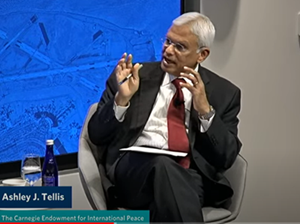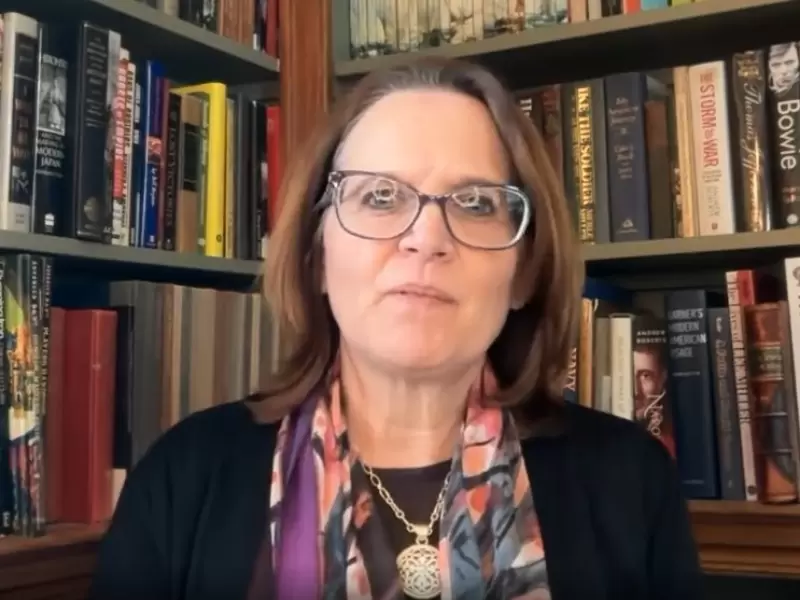PM Modi stands firm on Electoral Bonds amid opposition criticism
Electoral bonds transformed political funding in India by allowing individuals and corporate entities to contribute unrestricted funds to political parties
.jpg) PM Modi stands firm on electoral bonds amid opposition criticism / SCI
PM Modi stands firm on electoral bonds amid opposition criticism / SCI
Prime Minister Narendra Modi dismissed concerns raised by opposition parties regarding the issue of electoral bonds data, asserting that any perceived shortcomings can be addressed and that the opposition would soon regret their stance. In an interview with Thanthi TV, a Tamil news channel, Modi rejected the notion that the electoral bonds controversy had dealt a blow to his government, emphasizing that his administration remained steadfast in its commitment to governance.
Addressing the critics, Modi emphasized the need to refrain from politicizing every action, emphasizing his dedication to serving the nation's interests beyond electoral gains. He particularly highlighted the potential of Tamil Nadu as a crucial contributor to India's development, underlining his vision of a "Viksit Bharat" where every region experience progress.
"Tell me what have we have done that I should see it as a setback? I firmly believe that those dancing over it (bond details) and taking pride in it are going to repent," the Prime Minister said.
Regarding the electoral bond system, Modi defended its implementation, stating that it facilitated transparency in political funding by revealing the sources and beneficiaries. He challenged critics to disclose pre-2014 political funding data, suggesting that the current system had improved transparency compared to earlier practices.
"Just because I am a politician does not mean I work only to win elections. Tamil Nadu has huge potential which must not be wasted," he said.
"Viksit Bharat means that every corner of the country should be a recipient of development. I believe that Tamil Nadu has the potential to become the driving force behind our dream of a Viksit Bharat," he said.
“Can someone tell me how much these companies paid to political parties before 2014? Nothing is perfect, imperfections can be addressed," the Prime Minister added.
The Prime Minister's remarks come in response to criticism from opposition parties, including the Congress, who have seized upon revelations following a Supreme Court ruling earlier this year, deeming the previous political funding system unconstitutional, to launch attacks on the government.
What are electoral bonds:
Introduced in 2017, electoral bonds transformed political funding in India by allowing individuals and corporate entities to contribute unrestricted funds to political parties while maintaining anonymity. However, a recent landmark ruling by the Supreme Court in mid-February invalidated the longstanding election funding mechanism, just weeks before the upcoming Lok Sabha elections scheduled for April-May.
Previously, donors acquired these bonds in fixed denominations from the State Bank of India (SBI) and transferred them to political parties, which could then encash them through a designated bank account. Notably, the unique feature of these bonds was their ability to shield the identity of donors from disclosure, even to regulatory bodies such as the Election Commission of India (ECI).
According to the Association for Democratic Reforms (ADR), under the electoral bond scheme, a bond functioned akin to a promissory note, bearing characteristics of a bearer instrument. In this setup, the bond lacked identification of the buyer or payee, rendering no record of ownership information. Consequently, the holder of the instrument was presumed to be its rightful owner, as per ADR.
On Feb. 15, 2024 the Supreme Court declared of the central government's electoral bond scheme as unconstitutional by a five-judge constitution bench that instructed the SBI to disclose particulars to the Election Commission (EC) for public disclosure.
In its affidavit, the State Bank of India (SBI) revealed comprehensive details including the purchaser's identity, bond denomination and unique number, the name of the redeeming political party, as well as the last four digits of their bank account number. Additionally, particulars such as the denomination and unique number of the redeemed bond were disclosed.
The affidavit stated, "SBI has now disclosed all details, with the exception of complete account numbers & KYC details, in compliance with the directives outlined in the judgment dated Feb. 15, 2024, coupled with the order dated Mar. 18, 2024, issued by this court."
ADVERTISEMENT
ADVERTISEMENT
E Paper
Video




 Veronica Ezhil
Veronica Ezhil

.png)











Comments
Start the conversation
Become a member of New India Abroad to start commenting.
Sign Up Now
Already have an account? Login